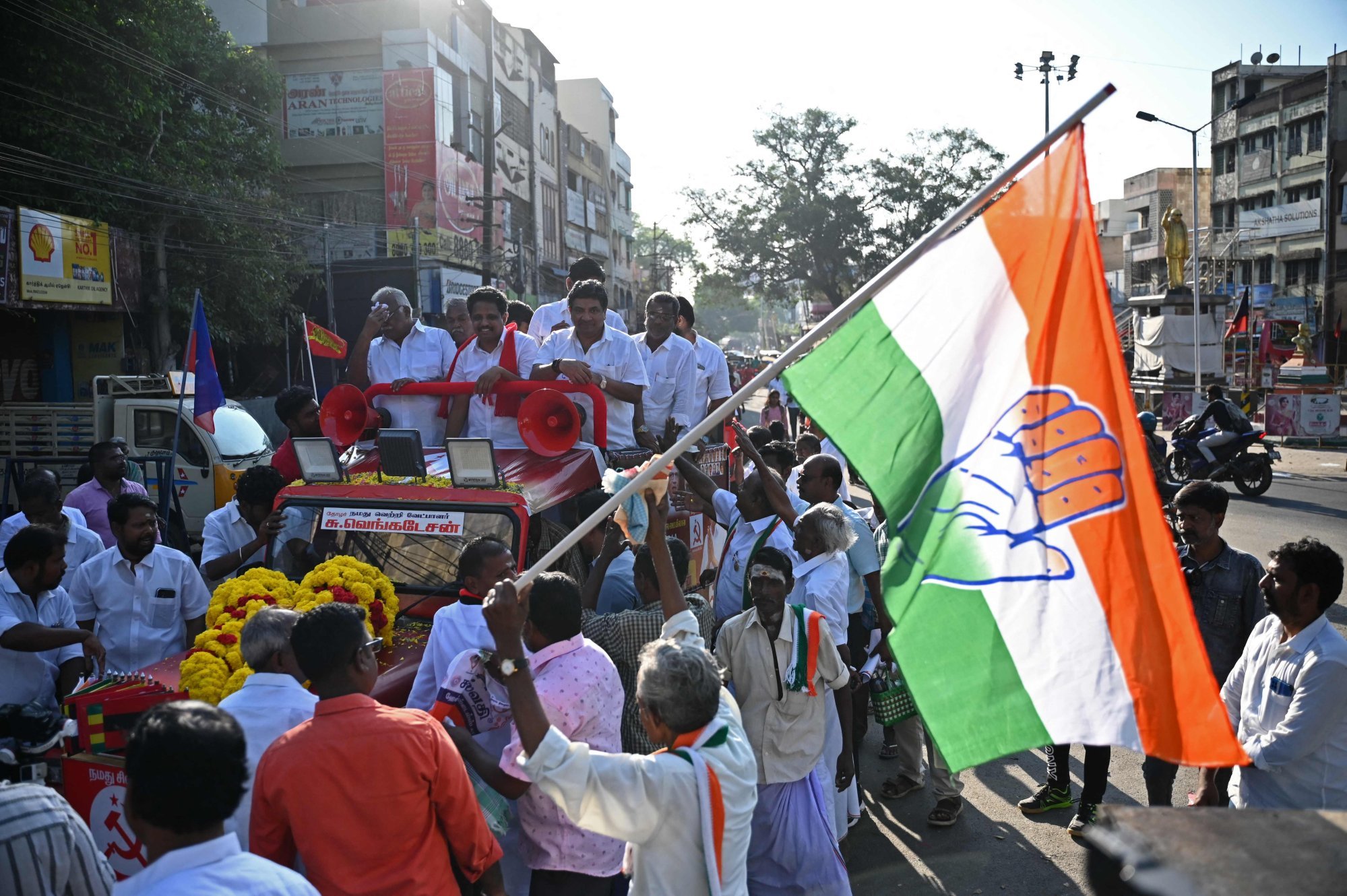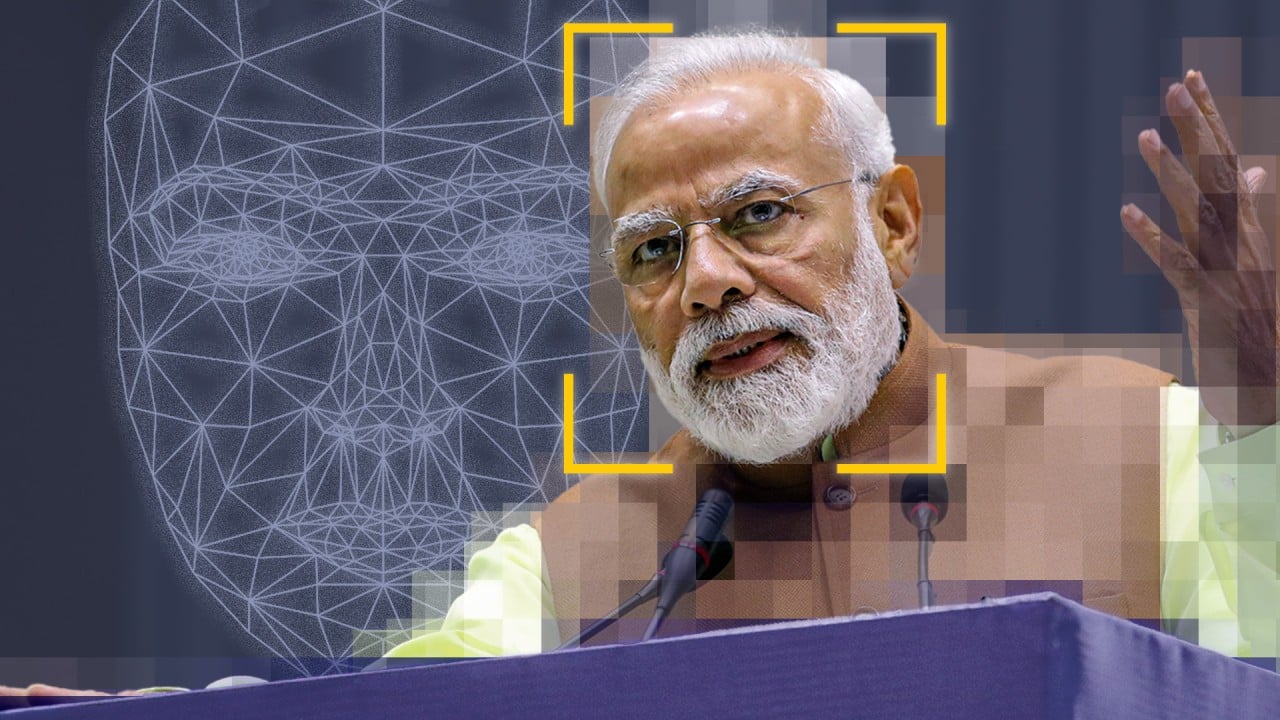“We got a hint of what’s at stake in this election in Mr Modi’s final speech in the last session of parliament,” said Arati Jerath, a Delhi-based political commentator and veteran journalist who expects Modi to overhaul India’s political system if he stays in power.
“Modi told the parliament to expect big decisions in the third term but didn’t spell out the specifics,” she said.
The BJP has always harboured reservations towards the word ‘secular’ in the constitution’s preamble. They undoubtedly aspire to remove it
“That’s why Modi is so hell-bent on this figure of 400. He needs that brute majority in the parliament to implement his agenda,” Jerath told This Week in Asia.
Coalition politics
Modi’s political juggernaut will face a stern test from a coalition of more than two dozen parties, mostly from the centre-left of the ideological spectrum.
Dubbed the Indian National Developmental Inclusive Alliance (INDIA), the bloc is anchored by the Congress party. Since its formation in 1885, Congress has been a major political force in India. The party’s influence, however, started to wane a decade ago with Modi’s rise to power, leading to its humiliating defeats in 2014 and 2019.
For this election, Congress is pinning its hopes on winning voters over by focusing on bread-and-butter issues such as inflation and high unemployment.
“People will pass the verdict on 10 years of the Modi government’s failure. Prices have doubled without incomes doubling,” Congress’ national spokesman Rajeev Gowda told This Week in Asia.
“The economy will be the determining factor in this election. Only the affluent section of the population is doing well. Everyone else is suffering. People vote with their stomachs too,” he said.

The BJP relies on social welfare schemes such as cash deposits, rural housing schemes and subsidised cooking gas to boost its electoral prospects.
At an election rally on April 7, Modi slammed the opposition bloc for its internal infighting and branded it a “den of corrupt and antinational people trying to divide the country”.
Asim Ali, an independent political researcher, warned of an “existential crisis” faced by opposition parties if the BJP were to cement its gains at the election.
“BJP aims to become the hegemonic political force, co-opting rivals. It has managed to dismantle opposition parties at the national level, leaving even state-level opposition parties struggling,” he added.
Creating a ‘Hindu Raj’
Amid expectations of Modi securing his third term, there are also rising concerns about the future of Indian democracy. The US-based non-profit organisation Freedom House and the Economist Intelligence Unit are among some of the global institutions that have warned about India’s regressing democracy in recent years.
“India’s social fabric is already under intense strain, and the 2024 vote will exacerbate existing fault lines regardless of the outcome. Democratic institutions have a chance to recover their élan if the Modi regime is ousted,” said Harish Khare, a former media adviser to ex-Indian leader Manmohan Singh.
“The INDIA bloc has emerged as the democratic alternative to the Modi coalition of the extreme right, extreme capitalism, and ultranationalism. If he comes back to power, India will willingly or unwillingly take to an autocratic governing arrangement.”
Analysts say the weaponisation of federal law enforcement agencies – such as the Enforcement Directorate and the Central Bureau of Investigation – by the government to target political opponents and silence critics would have far-reaching consequences if Modi becomes prime minister again.
In line with Indian politics’ tilt towards the right, Modi has been gaining ground among Hindu voters, including those who are part of the country’s elite, according to Ali.
“Generally, the upper echelons of society – the upper class and upper caste – have aligned with the BJP. This elite consensus will have a lasting and profound impact on the country’s politics,” Ali said.
Critics argue that India’s religious pluralism has been eroded over the past decade in tandem with the BJP’s electoral gains, citing examples of the party’s push to remake the country as a “Hindu Raj”.
Why do India’s general elections take so long to complete?
Why do India’s general elections take so long to complete?
“Some BJP leaders have hinted at changing the constitution and declaring India as a Hindu Raj. Discussions within the BJP and its ideological parent Rashtriya Swayamsevak Sangh regarding a Hindu Raj have been ongoing,” Jerath said.
Signs have already emerged that India could formally adopt Hindu nationalism as the core of its political system should Modi secure a thumping majority in his third term, according to Jerath, who pointed to reports of violence against minority communities during processions or at places of religious worship in recent years.
“The BJP has always harboured reservations towards the word ‘secular’ in the constitution’s preamble. They undoubtedly aspire to remove it.”


